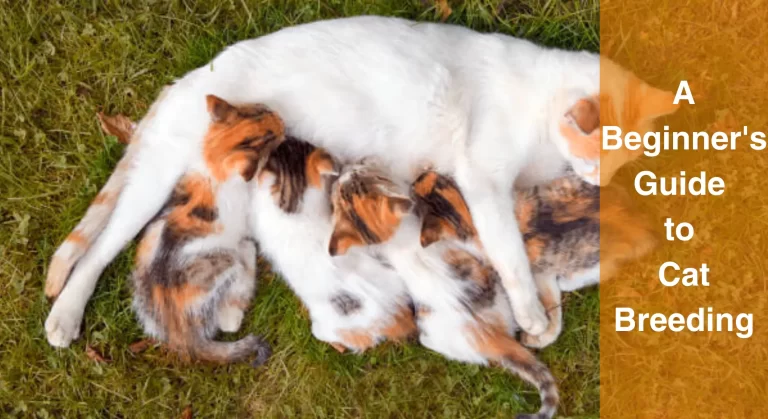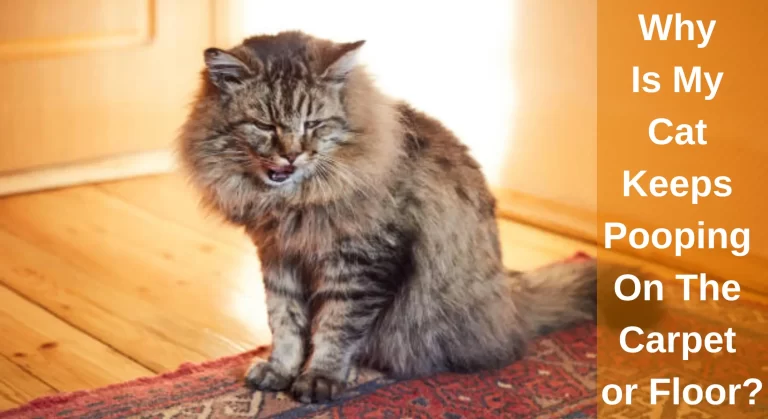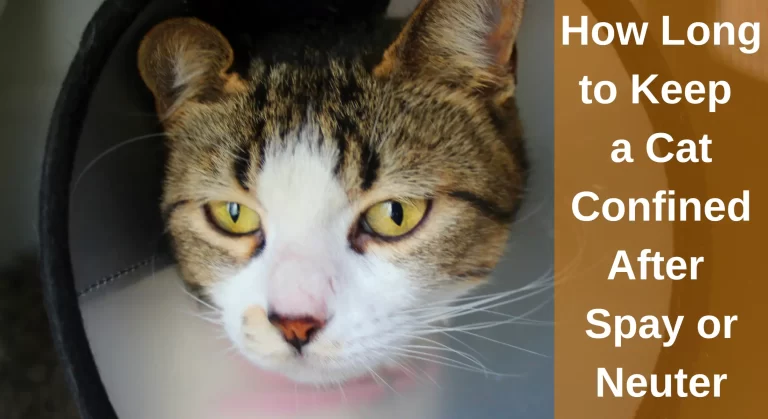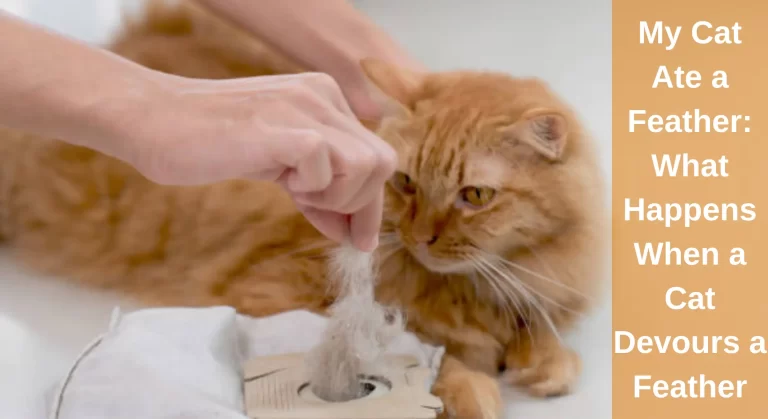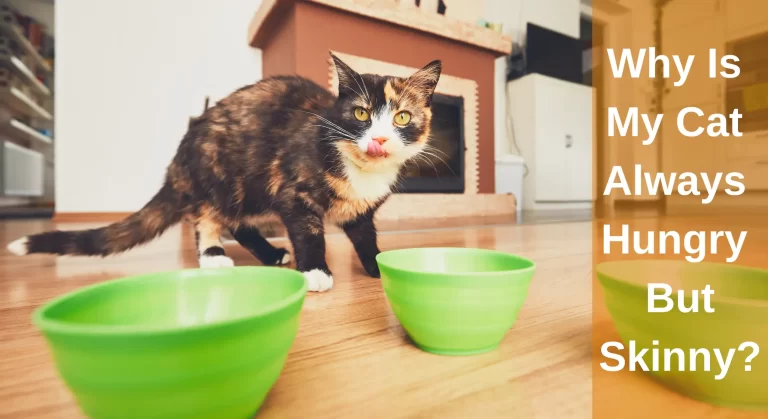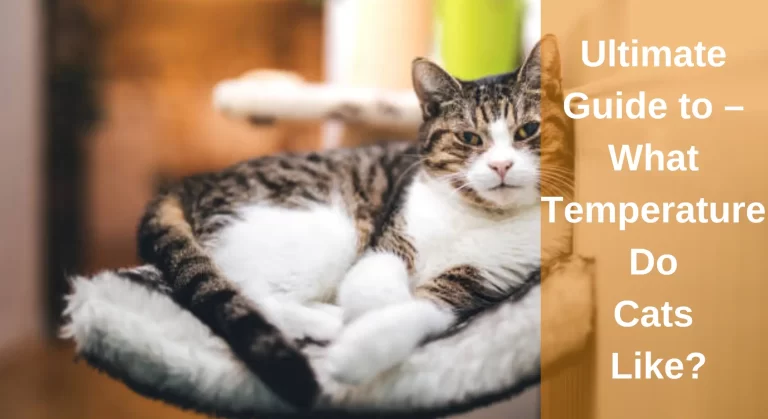Why Are My Cat’s Eyes Dilated All The Time? Here’s What Might Be Going On
Cats’ pupils can expand and contract much like our own. For both bright and low-light vision, this controls how much light enters their eyes. The pupils of a healthy cat will dilate and enlarge in various situations. However, if your cat’s eyes are always dilated, that might be concerning. The first obvious sign of many underlying issues may often be seen in a cat’s eyes, which can also tell you a lot about how your cat is doing.
One of the most common reasons for dilated pupils in cats is low light conditions. Cats have excellent night vision and their pupils will naturally dilate in dim lighting to allow more light to enter the eye. However, if your cat’s eyes are always dilated, even in bright light, it could be a sign of an underlying medical condition such as hypertension, dysautonomia, or feline dilated pupil syndrome. These conditions can affect the nerves that control the size of the pupil, causing them to remain dilated even in normal lighting conditions.
Your cat’s eyesight may be at risk if you don’t find out what’s wrong with her eyes and why the cat’s eyes dilated all the time. Maintaining feline eye health requires timely diagnosis and treatment of underlying medical issues. In this article, we’ll explore some of the common reasons why cats’ eyes dilate and what you can do about it.
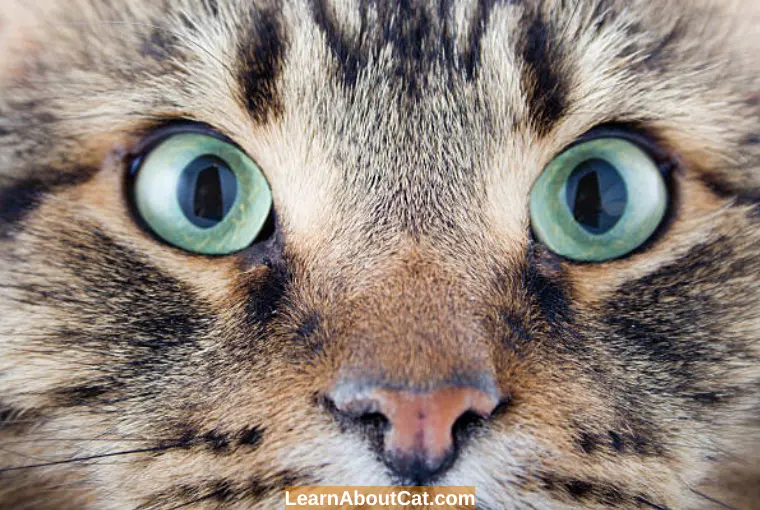
Exploring the Functioning of the Cat Eye: A Closer Look
In order to comprehend the fascinating phenomenon of a cat’s pupils dilating, it is crucial to examine the intricate workings of their eyes. A feline eye comprises two primary components: the iris and the pupil. The iris, the pigmented segment encircling the pupil, plays a crucial role in regulating the amount of light that infiltrates the eye.
The pupil, a dark circular aperture at the centre of the eye, is the primary agent responsible for controlling the amount of light that enters the eye. This remarkable mechanism operates through the action of the iris muscles, which have the ability to constrict or dilate the pupil based on the intensity of the ambient light.
Why Do Cat’s Eyes Dilate?
It is common for cats to widen their eyes in dim light to enhance their vision. Cats can see better when more light enters their eyes through their pupils. As a result, a cat’s pupils may look permanently dilated at night.
If the dilatation is merely temporary, it is not an issue. For instance, someone treading on your cat’s tail might cause discomfort. Furthermore, if a loud noise scares your cat, it will quickly get over it.
Normal Dilation in Cats
In some cases, dilated pupils in cats are completely normal and nothing to worry about. Here are a few normal causes of dilated pupils in cats:
- Light conditions: The normal size of a cat’s pupil varies depending on the amount of light present. In bright light conditions, the pupils will constrict to protect the sensitive retina from damage. In low light conditions, the pupils will dilate to allow more light to enter the eye and improve vision. However, some cats may have naturally larger or smaller pupils than others, and this is usually not a cause for concern.
- Excitement or playfulness: When your cat is excited or ready to play, their pupils may dilate. This is a normal response and should go away once your cat has calmed down.
- Ageing: As cats age, their pupils may dilate more frequently and stay dilated for longer periods of time. This is a normal part of the ageing process.
Find Out: Disoriented Cat with Dilated Pupils, Why And How To Help
Why Are My Cat’s Eyes Always Dilated? Medical Conditions
Cats’ eyes typically enlarge to express excitement, anxiety, or worry when the illumination changes. The medical word for dilated pupils is mydriasis. If the lighting is not dim, there may be another cause for the cat’s dilated pupils.
The eyes of a cat should not, however, be constantly dilated. It’s not worth the risk to put off getting a potential medical condition checked. The causes or reasons why my cats are dilated are as follows:
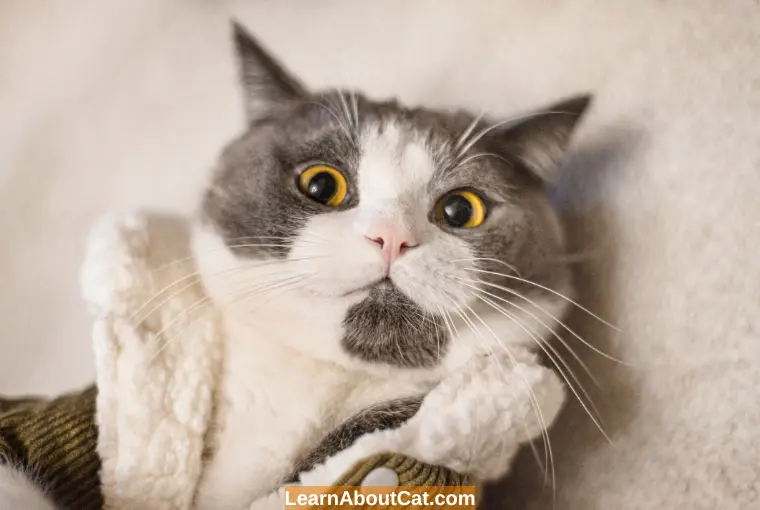
1. Loss of Vision or Blindness
If your cat is losing its vision, its eyes may get dilated all the time. They dilate their pupils to receive as much light into their eyes as possible to improve their vision (cats have poor eyesight). By doing this, their body is trying to compensate for their declining vision.
Cats’ rounded pupils are only one sign of poor eyesight; others include:
- Clumsiness
- Extra caution before leaping
- Seeming shocked more often than normal
- Disorientation
Disorientation Cat eyes do deteriorate with age. Therefore, if your senior cat is acting a little clumsily and has dilated pupils, blindness is definitely a concern.
2. Chronic Pain
Cats’ pupils get larger, much like when they’re in pain. Therefore, your cat’s constantly dilated pupils might be due to ongoing pain. Cats really have a natural urge to conceal their discomfort since doing so will attract the notice of wild predators. Dilated pupils are one of the few constant warning indications of a physically upset cat.
Your cat may exhibit a variety of other symptoms in addition to dilated eyes if chronic pain is the cause. Watch out for all of the following red flags such as:
- Appetite Loss
- More intolerant of others
- Lethargic and generally feeble.
- More antagonistic to other animals
Also Read: Why Is My Cat Keeping One Eye Closed?
3. Anisocoria (One of My Cat’s Eyes is Dilated)
Does your cat have a single, constantly open, dilated eye? If this is the case, your cat has anisocoria, a condition where one pupil is bigger than the other. It’s not an illness itself; it causes other diseases, actually.
Among other things, glaucoma, head injuries, corneal ulcers, toxic exposure, and glaucoma can all result in anisocoria. As a result, anisocoria is treated in accordance with the underlying condition that gave rise to it.
4. Ocular Tumours
Cats with non-constricting eyes may develop ocular tumours in those regions. The tumours may press against the eye’s muscles and blood vessels, impeding normal constriction.
The region around the eyes is also seriously damaged by these tumours. Dilated pupils and pain are clearly related, as was already noted.
Additional indications include eyelid oedema, discoloured eyes, a crooked iris, and eyes leaking tears. Glaucoma is another cause of dilated pupils.
Glaucoma is a condition in which pressure builds up in the eye, causing damage to the optic nerve and potentially leading to blindness
Furthermore, most tumours that develop inside the eyes are malignant. This suggests that they arise naturally and spread easily to many regions of the body.
5. Hypertension
There are various causes for your cat’s eyes to be permanently dilated, but high blood pressure, often known as hypertension, is the most common one. Cats with hypertension have blood pressure that is more than 160 mm Hg. The following symptoms are also brought on by this condition in addition to dilated eyes:
- Extreme thirst and increased water consumption
- Bleeding from the nose and peeing blood
- Seizures and muscle tremors
- An irregular pulse
Take your cat to the vet so they can prescribe an appropriate course of medication, as there are a number of illnesses that can cause feline hypertension, such as kidney disease, thyroid problems, or heart disease. The condition is also more common in older and overweight or obese cats.
6. Disordered – Stress and Anxiety
Another cause of some cats’ round pupils is anxiety issues. In response to fear, cats’ pupils are now frequently dilated. As a result, adrenaline is released. One of the body components that adrenaline impacts are the pupils.
Cats have the best chance of fleeing danger when the hormone causes the pupils to enlarge and so improves eyesight.
You could observe this reaction in your cat if it is frightened by a sudden loud noise, a strange person or animal, or perhaps both. Your cat will likely be anticipating the threat with its eyes wide open and vigilant, ready to either fight, run away or hide.
7. Feline Dysautonomia
Although it is extremely uncommon, your cat may develop feline dysautonomia (also referred to as Key-Gaskell Syndrome). In contrast to many other illnesses on this list, it mostly affects young cats. Your cat’s autonomic nervous system is affected due to dysautonomia.
The ANS regulates practically every essential bodily function that your cat needs to survive and does not require conscious cognition.
Other Symptoms:
- Slow Hear Beat
- Digestion Problems
- Wight loss and appetite loss
- Vomiting and regurgitation
- Respiratory issues
- Having trouble urinating
- The protrusion of the eyelid
For instance, your heart beats of its own accord. You don’t need to tell your stomach to digest your meal; it does it on its own. You cannot force your pupils to dilate or constrict; it is natural.
This characteristic is shared by most animals, including your cat. Cats with the Key-Gaskell syndrome always have dilated pupils because they are unable to manage these processes.
8. Feline Spastic Pupil Syndrome
Feline spastic pupil syndrome is a condition that affects cats with anisocoria, sometimes known as alternating anisocoria. This indicates the presence of the feline leukaemia virus (FeLV). The following clinical symptoms of this viral infection are also present:
- Loss of appetite and weight
- Gums that are pale due to anaemia
- General sluggishness and lethargy
- High temperature and fever
- Difficulties breathing
- Drab, subpar coat
Feline leukaemia is the second most common cause of death in cats, behind trauma. It is an immune system condition that is harmful. Vaccination is important because there is no cure for FeLV. It is recommended to keep your cat indoors if it has been diagnosed with FeLV.
9. Iris Atrophy
Senior cats with dilated pupils may be affected by iris atrophy, an ageing condition. As cats age, their iris, the vibrant region that surrounds their pupil, thins and degenerates. The iris is a muscle that helps the pupil respond to bright light by contracting and giving your cat’s eyes their wonderful colour. Senior cats may thus seem permanently dilated.
Once the muscle has deteriorated, age-related iris atrophy cannot be reversed. Rarely do cats with dilated pupils develop discomfort or long-term vision problems. Only one little change, enhanced sensitivity to bright light, may occur in your cat.
10. Side Effects of Medication
A side effect of the medication is another element causing round pupils in certain cats. Analgesics like opioids like buprenorphine, which dilate cats’ pupils, are among the most often used types of drugs. Medication used to treat hypertension might potentially have the adverse effect of dilation of the pupils.
Certain medications can also cause dilated pupils in cats. These medications include:
- Atropine
- Epinephrine
- Phenylephrine
- Pseudoephedrine
- Antidepressants
If your cat is on any of these medications and you notice dilated pupils, it is important to consult with your veterinarian.
You’ll probably be able to determine whether this is the reason for your cat’s dilated eyes because it will happen immediately after each time you give them their medication. They could also experience extra pharmacological side effects such as pacing or excessive licking.
Also, Check Out: Why Does My Cat Blink One Eye?
Why Are My Old Cats Eyes Always Dilated
While it is true that iris atrophy and dilated pupils are common in old cats, we shouldn’t disregard or take this condition for granted.
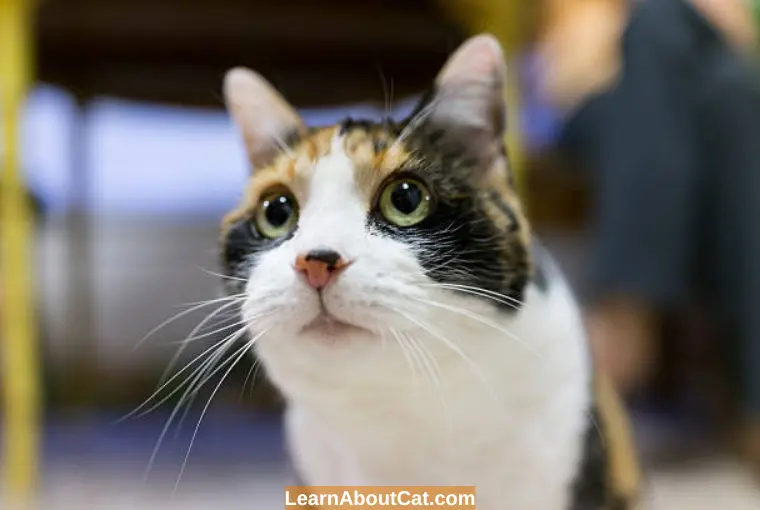
There can be several reasons why your old cat’s eyes are always dilated. One possible explanation is that as cats age, their pupils can become less responsive to changes in light and remain dilated. This is a common condition called “senile miosis.”
Also, Older cats are more prone to diseases, many of which are age-related, such as hyperthyroidism and high blood pressure, that might cause the pupils to widen. Senior cats need a comprehensive inspection if their pupils remain dilated all the time.
Cats’ eyes should remain largely unfocused during the day. Eye-dilating medications should only be used as a last resort. Cats’ eyes may stay dilated all day and all night due to illness or psychological issues.
Also Read: Why My Cat Has Watery Eyes
Why Are My Kittens Eyes Always Dilated?
If your kitten’s eyes are always dilated, it may be a normal condition for their age, as kittens’ pupils can stay dilated wider than adult cats. This is because their eyes are still developing, and their pupils are more sensitive to changes in light.
However, dilated pupils in kittens can also be a sign of an underlying health issue. For example, a kitten may have an eye infection or injury, or they may have ingested a toxic substance. Additionally, certain neurological or hormonal conditions can cause dilated pupils.
If you are concerned about your kitten’s dilated pupils, it’s important to take them to a veterinarian for a check-up. The veterinarian can examine your kitten’s eyes and perform any necessary tests to identify the cause of the dilated pupils and provide appropriate treatment.
When to Seek Veterinary Care
In addition to persistent eye dilation, there are other symptoms that may indicate an underlying medical condition. These include:
- Cloudy or red eyes
- Discharge from the eye
- Squinting or pawing at the eye
- Changes in behavior or appetite
- Head tilting or stumbling
If you observe any of these symptoms in your feline companion, it is crucial to take them to a veterinarian promptly. Your veterinarian can evaluate your cat’s eyes and determine if there is an underlying medical ailment that requires attention.
They may also perform additional tests, such as blood work or an eye exam, to further evaluate your cat’s health.
Treatment Options
The treatment for dilated pupils will depend on the underlying cause. For example, if your cat’s dilation is caused by pain, treating the underlying issue will help reduce the dilation.
Glaucoma may be managed with eye drops that help lower the pressure in the eye. Uveitis may be treated with anti-inflammatory medication, such as steroids.
If the dilation is caused by medication, the veterinarian may adjust the dosage or switch to a different medication.
In more severe cases, surgery may be required. For example, if a cat has a retinal detachment, surgery may be necessary to reattach the retina and restore vision.
In addition to medical treatment, there are steps you can take at home to help your cat manage their condition. This may include providing a quiet and comfortable space for your cat to rest, as well as minimizing exposure to bright light, which can exacerbate symptoms.
How Can the Color of Your Cat’s Eyes Indicate Its Health Status?
The iris of your cat’s eye is what gives its eyes its colour. Any colour on the colour wheel may be used for them, including green, hazel, golden yellow, lemon yellow, amber, orange, copper, and even a mix of colours.
The following are the colours of cat eyes that are most frequently seen:
Blue, Green, Orange or Yellow, Hazel and Brown, but the most typical cat eye colour is hazel/brown, and it has symbolic connotations.
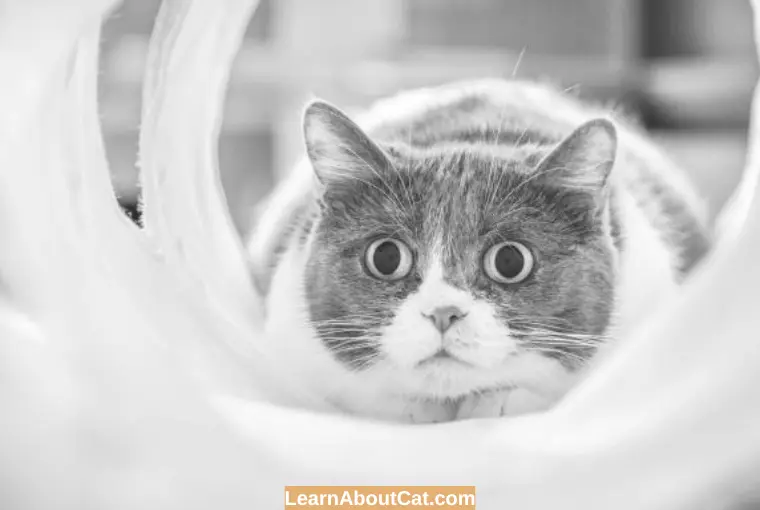
The Green-Eyed Cat
Green eyes are another effect of the cat’s iris lacking melanin. Green-eyed cat breeds include Burmilla, Sokoke, and Russian blue cats. You may have noticed that these cats can have either light or dark hair, yet they will still have stunning green eyes.
The particular shade of green that each cat will have is determined by genetics. While some could be more hazel or mild yellow-green in colour, some might be deep emerald green.
Albino and White Cats
Animals that are albino often have pink eyes because they lack melanin. Cats don’t typically do this, though. Because albino cats lack melanin, which gives other animals colour, they frequently have white hair and light blue eyes.
Hearing loss is less common in albino cats than in eyesight issues. However, white cats are more likely to be deaf.
White cats have melanin, unlike albinos, who have no melanin at all. Additionally, they are more susceptible to specific health issues.
Orange or Yellow Eyes in Cats
Yellow or orange eyes are yet another common eye colour for cats. The absence of melanin in the iris contributes to this as well. Some cat breeds having yellow or orange eyes are the Somali, Chausie, Burmese, and Cornish Rex.
Cats frequently have hazel or even brown eyes. These cats have more melanin than typical in their eyes. Actually, this is one of the rarest cat eye colours. Feral cats frequently have hazel eyes. In addition, lynxes and bobcats, two species of wild cats, frequently have hazel eyes.
Cats with Blue eyes
If there is little melanin in the iris of your cat, its eyes will be blue. Although cats with blue eyes typically have white or other light-coloured coats, there is currently no scientific evidence linking a cat’s coat colour to its eye colour.
For example, the Himalayan and Snowshoe cat breeds both have blue eyes. They shouldn’t be confused with melanin-free albino cats, though.
Cats with Two Distinct Eye colours
Two different eye colours are another possibility in cats. Numerous species, including people, are afflicted by the condition known as heterochromia. This happens when a gene for whiteness or white spots stops pigment in the developing iris from concentrating and dispersing.
As a result, each eye will have a unique colour. Occasionally, this could affect only one eye. This disease commonly affects white cats, e.g. Japanese bobtail, Turkish angora breeds, and Turkish van cat breeds are more affected.
Frequently Asked Questions
Are cats’ pupils larger when they are ill?
The outcome of a picture of How dilated cat eyes may point to health concerns. Cats’ eyes can expand for a variety of reasons, some of which can be hazardous medical conditions. If your cat’s eyes are persistently dilated and accompanied by other illness-related symptoms, consult your veterinarian. A cat’s pupils should grow narrow in bright, well-lit environments.
Can dilated cat eyes be dangerous?
Dilated cat eyes can be a sign of an underlying medical condition, which can be dangerous if left untreated. It’s important to take your cat to the vet if you notice any changes in their eyes.
Can cats with abnormal eye dilation still lead normal lives?
Many cats with abnormal eye dilation can still lead a normal life if they receive timely diagnosis and treatment. Nevertheless, the prognosis relies on the root cause of the dilation and the extent of the condition. Your veterinarian can furnish further information on what to anticipate and how to optimally manage your cat’s condition.
How can I help my cat with dilated eyes at home?
There are several ways you can help your cat with dilated eyes at home, such as providing a calm and safe environment, reducing stress, and ensuring they have access to plenty of fresh water and food. However, it’s always best to take your cat to the vet if you have any concerns.
Are there any home remedies that can help with abnormal eye dilation in cats?
There are no proven home remedies for abnormal eye dilation in cats, and attempting to treat the condition at home can actually make it worse. It’s important to seek veterinary care to determine the underlying cause and appropriate treatment.
Conclusion
The pupils of a healthy cat will dilate and enlarge in various situations. However, if your cat’s eyes are always dilated, that might be concerning. The first obvious sign of many underlying issues may often be seen in a cat’s eyes, which can also tell you a lot about how your cat is doing.
Take your cat to the vet as soon as you can if you notice that its pupils are always large. Their hypertension, a sequel symptom for several illnesses, typically causes their pupils to expand. Therefore, your veterinarian must determine the root cause of the problem and apply effective treatment.
Additional conditions could be present, the majority of which could benefit from appropriate treatment. Your cat will likely recover fast and be in fantastic condition if you follow your doctor’s advice.
Who is Isabella?
My name is Isabella, and I am a dedicated and knowledgeable cat enthusiast. With years of experience caring for cats and a deep love for felines, I made a mission to help other cat lovers navigate the challenges of cat ownership.

